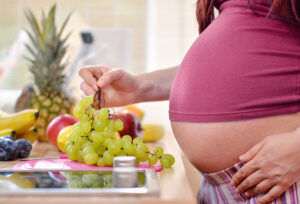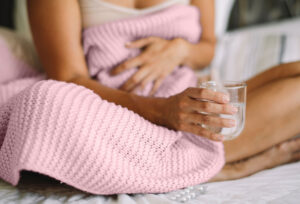
10 Nutrition Tips for Pregnant Women
During your pregnancy, you’re eating for two. That means you need to eat more, and you need to eat better. As a result, your diet
Bacterial vaginosis is a vaginal infection caused by an overgrowth of bacteria. The vagina naturally contains “good” and “bad” bacteria. In cases of bacterial vaginosis, there’s an excess of bad bacteria, which throws the vaginal environment out of balance. Bacterial vaginosis is a common condition that many women can get, regardless of whether they’ve had sex. Home remedies can be used to treat and prevent it. Some may be more effective than others. These treatments likely won’t be as effective as prescription medications. But many come without some of the side effects prescription medications can cause. Read on as we cover the best home remedies for bacterial vaginosis.
Yogurt is a natural probiotic, which means it has plenty of healthy bacteria in it. Eating yogurt may help introduce healthy bacteria back into the body. This helps establish a balanced vaginal environment and could help fight off the bad bacteria. To get the full benefits, eat at least one serving of yogurt per day.
Yogurt contains some probiotics. But there are plenty of probiotic supplements available. According to a 2014 review, which focused on the effects of probiotics on bacterial vaginosis, there’s evidence that taking probiotic supplements daily can help treat and prevent bacterial vaginosis. If you have bacterial vaginosis, try taking probiotics daily to help treat and prevent future cases of bacterial vaginosis. Probiotics come in pill or liquid form. If you’ve been prescribed an antibiotic, this medication can kill off the good bacteria as well as the bad. Probiotic supplements and yogurt can help replace good bacteria.
Garlic has strong antibacterial properties, and it’s long been used as a home remedy for bacterial vaginosis. A 2014 study compared the use of garlic tablets and oral metronidazole, an antibiotic, in treating the condition. Study results showed that taking a garlic supplement tablet could be an option for treating bacterial vaginosis.
An older 2003 study found that about 1 ounce of hydrogen peroxide used daily for 1 week as vaginal irrigation was able to help treat bacterial vaginosis as well as traditional medications. It comes with the advantage of a much lower cost than these medications. It also has fewer side effects.
Tea tree oil has powerful antibacterial and antifungal properties that can help treat bacterial vaginosis. One small study done in vitro reported successful treatment of bacterial vaginosis with only tea tree oil. Additional human studies for the treatment of bacterial vaginosis with tea tree oil are still needed. Essential oils like tea tree oil need to be diluted with a carrier oil like coconut, sweet almond, or olive oil. Choose an oil you know you’re not allergic to and mix 5 to 10 drops of tea tree oil in 1 ounce of carrier oil. Before you try this home remedy test a small amount of the diluted oil on your skin before using it on your tender vaginal tissue. If there’s no reaction in 24 to 48 hours, it should be safe to use. The most common way to treat bacterial vaginosis with tea tree oil is by soaking a tampon in the diluted mixture. Insert the tampon into the vagina and remove it after an hour. Remove it sooner if there’s any irritation. Repeat this a few times per day. Don’t sleep with a diluted tea tree tampon in place.
Certain types of underwear, including spandex, aren’t as breathable as cotton underwear. Wearing underwear made of these materials can trap moisture. This can cause a breeding ground for bacteria and can worsen a bacterial vaginal infection. To help your bacterial vaginosis heal quicky and to prevent future cases, wear cotton underwear that’s breathable. Also, avoid wearing tight pants.
Boric acid capsules can be used to treat bacterial vaginosis. In an early study, a combination of suppressive antimicrobial therapy and intravaginal boric acid were used to treat recurring bacterial vaginosis in 58 women. Study results showed varying levels of successful treatment which was defined as achieving remission. The levels of success were categorized based on the makeup of the course of treatment. It’s safe to use in the vagina and has been found to be as effective as some medical approaches to treatment. More research is needed to better understand this treatment approach. But note that boric acid is not edible; it’s toxic to eat. It should be kept away from children and animals. It’s also not safe to use if you’re pregnant.
Bacterial vaginosis is a relatively common vaginal infection caused by an overgrowth of bacteria. Though mild cases may resolve on their own, home remedies can be used to treat and prevent it. That being said, serious cases are best treated with prescription medication prescribed by your doctor.

During your pregnancy, you’re eating for two. That means you need to eat more, and you need to eat better. As a result, your diet

Periods. The word alone can cause anxiety. If you have PMS, the anxiety can be multiplied by 10. The only thing worse than your period
One of the most natural occurrences for women is their period. For many women, however, it can be hard to know what’s going on with
Copyright © Oohvie 2024 . All rights reserved. | Privacy Policy | Terms & Conditions


